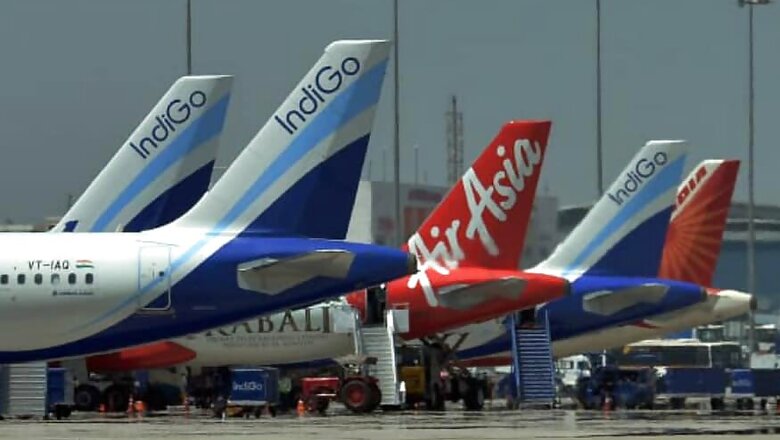
views
The coronavirus pandemic has turned the Indian aviation industry upside down and with a lockdown of almost 40 days now, no commercial flight has operated over the Indian airspace barring flights operated under government's directive on special cases. While the industry is hopeful for lockdown to open soon so that people are able to travel, flying will not be normal for at least a few months till a vaccine is found for the COVID-19.
Apart from the proper sanitization rules that will be applied at the airports and flights once the services are resumed, social distancing norms will be implemented too. There's a lot of talk to stop bookings for the middle row seats in domestic flights to adhere social distancing inflight.
The Bureau of Civil Aviation Security has proposed that when airlines resume services they must not sell the middle seat, and the last three rows should be kept vacant in the event that a passenger needs to be quarantined mid-flight.
If such a rule is applied to airlines, the air carriers will face economic burden as the operation cost for a flight, right from fuel to parking chargers remains the same.
As per a study done by Centre for Asia Pacific Aviation India (CAPA India), if such social distancing norms are applied, flyers will have to shell out extra money to compensate for empty seats in flights. CAPA estimates that the prices on most important routes will double as a result.
Delhi-Mumbai one side fare will increase from Rs 5,000 to a maximum of Rs 9,700. Similarly, the price on Delhi-Bengaluru route will increase from Rs 5,700 to Rs 11,200 to meet the total costs on the selected routes.
CAPA reached out the prices by considering the load factor on a fight. A 180-seat narrowbody aircraft can sell maximum 108 seats if social distancing norms are in place, representing a 60% load factor.
Apart from the fewer seats available per flight, the turnaround time is also expected to increase, further reducing the profitability of air carriers. The turnaround time is expected to increase due to stringent inflight cleaning and slower boarding process to adhere social distancing norms.
Delhi Airport had announced that it will ensure strict adherence to social-distancing norms once passenger flights resume, with deployment of additional queue-managers, extra check-in area seats and use of coloured-tape and markers to maintain queue-gap.

















Comments
0 comment